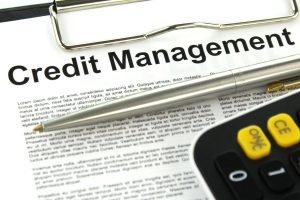When consumers find themselves in debt, they often think that bankruptcy is their only option. In reality, there are many benefits to debt settlement for both the creditor and the consumer. Not only can you avoid a court date, you can also stop getting collection calls and have more time to save. Plus, you can keep your credit history clean by avoiding fees paid to settlement companies. Here are some of the main benefits of debt relief through settlement.

A successful debt settlement will reduce the total amount you owe by half or more, allowing you to put that money toward other aspects of your life. You won’t receive any more harassing collection letters or phone calls from creditors, and you will be able to focus on other things. You will also no longer have to worry about lawsuits or late fees from your creditors. Finally, you’ll be able to pay your debts without having to file for bankruptcy.
Debt settlement is a viable option for individuals in financial hardship. It can free up more funds for other priorities, such as saving for a home, taking a vacation, or changing careers. It can also help you avoid bankruptcy, which is another great advantage to debt settlement. There are several other benefits to debt settlement, and you should consider it if you’re considering it. If you are facing financial difficulties, you should consider debt negotiation.
Using a debt settlement company will allow you to take control of your finances and focus on other areas. This process allows you to save money for a rainy day or a vacation, and allows you to see a brighter future. Moreover, it can even help you avoid bankruptcy altogether. It takes less time to pay off your debts and can give you more time to focus on other things in your life. It can even help you save money for a house or change your career.
One of the biggest benefits of debt settlement is that you can start building credit right away. You can use a secured credit card to establish your responsibility and pay your monthly payments. While it will take a longer time than bankruptcy, it is much better for your financial future. So, if you’re looking for a debt solution, consider debt settlement first. If you have a substantial amount of savings, you’ll have more flexibility when negotiating with creditors.
Debt settlement may sound like a good option for your financial situation. In fact, it is beneficial for your finances and your credit score. In the long run, it could help you to restore your credit. However, there are some cons to it. Firstly, debt settlement can have a negative impact on your credit. When you use debt settlement, your creditors can report it to the credit bureaus, which can affect your credit.
Debt settlement can reduce your debt. If you can stay committed and make your agreed upon monthly payments, you can eliminate your debt. You can also repair your credit with a debt settlement, but you’ll have to do your due diligence. Once you’ve settled your debt, you can focus on repairing your credit score. By paying off your debt, you can improve your financial situation. This is a major benefit of debt settlement.
The third benefit of debt settlement is the lack of time spent in managing your debt. The process of settling your debt means that you’ll be able to keep a monthly payment schedule, instead of having to make missed ones. In most cases, you can settle your debt in less than two years. If you’re willing to stick to the plan, you’ll have no trouble repairing your credit. The best part of debt relief is that it will help you get out of financial debt and stay out of bankruptcy.
The process of debt relief is simple. Most consumers don’t have the time to spend months negotiating their debts. The process of debt settlement is quick and painless for the consumer. The savings will be significant and he or she can focus on rebuilding their credit scores. The benefits of this method of debt relief are numerous. It can make your life much easier and less stressful. With the right partner, you can achieve your financial goals in a matter of months. Visit https://www.tennesseedebtreliefhelp.com/debt-settlement-memphis-tn/ to learn more about debt relief services.
 Debt settlement according to
Debt settlement according to  A
A